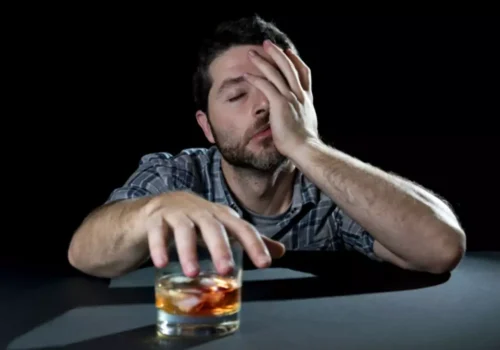
Common alcohol withdrawal symptoms can include nausea, shaking, and sweating—which can be unpleasant or even dangerous. In order to quit drinking, you may need proper medical support to detox safely. As you prepare your plan to quit drinking, make a list of the barriers that might be standing in your way and brainstorm ways to deal with these problems. Potential solutions might include looking for low-cost treatment options, joining a support group, and talking to a mental health professional. Your doctor may also prescribe medications that can reduce withdrawal symptoms and cravings.
- The sudden lack of alcohol in your system can send your body into withdrawal, resulting in various symptoms.
- “You could use a calendar, journal or any number of tracking apps.” Drink Control Alcohol Tracker or Less are two examples of free tracking apps available on iOS devices.
- Take our free, 5-minute alcohol misuse self-assessment below if you think you or someone you love might be struggling with alcohol misuse.
- Through therapy, support groups and medication, you’ll be supported on your path to recovery.
- According to researchers, self-affirmation can help a person stay on track even in a threatening environment.
Patient Care Network
Use the NIAAA’s drink size calculator to determine the amount of alcohol in various drinks. When you consider how to go about giving up alcohol, account for factors like how much you drink and your reasons for drinking. If you turn to alcohol to manage emotional distress, the added overwhelm can prompt the urge to drink, making success seem even more out of reach. What’s most important is looking at your drinking habits and finding a way to cut back that works for you.
Helping children make friends: What parents can do

Of course, being sober doesn’t mean your glass has to be empty, either. There are more tasty nonalcoholic beverages on the market tips to quit drinking than ever before. Find one you like, and use it to replace your evening drink or give yourself something to sip on at a party.

Plan for triggers and cravings
If you’re living with alcohol use disorder, treatment at a medical rehabilitation facility is your best option. Through therapy, support groups and medication, you’ll be supported on your path to recovery. Laying it all out in black and white can take time and some serious self-examination. Understanding your habits and your motivations to quit drinking can help you understand the change you’re making in your life and reinforce why it’s important.
Handling setbacks in your recovery
- If you tend to drink too much whenever there is any alcohol in the house, get rid of it altogether, the NIAAA recommends.
- Set a daily message alert on your phone for moments when you know you’ll crave a drink the most.
- In addition, local or virtual support groups can help by providing an environment to safely discuss tips and challenges.
- The main difference between tapering and quitting alcohol cold turkey is how fast you quit.
Let’s get you even closer to finding new hope and life in sobriety. But we know you can find a healthier, happier way to live with the right tools and support system. Below are some specific strategies to try, and you can add your own at the end.
Create a support system
It is normal and even expected for people to try to quit at least once before achieving sobriety. When you’re craving alcohol, there’s a tendency to remember the positive effects of drinking and forget the negatives. Remind yourself of the adverse long-term effects of heavy drinking and how it won’t really make you feel better, even in the short term. Cravings for alcohol can be intense, particularly in the first six months after you quit drinking. Good alcohol treatment prepares you for these challenges, helping you develop new coping skills to deal with stressful situations, alcohol cravings, and social pressure to drink.


If a setback happens, get back on track as quickly as possible. Research shows that most people who drink heavily, even those with AUD, can cut back significantly or quit. Consider staging a family meeting or an intervention, https://ecosoberhouse.com/ but don’t put yourself in a dangerous situation. Express your concerns in a caring way and encourage your friend or family member to get help. Try to remain neutral and don’t argue, lecture, accuse, or threaten.
Measure your drinks.
If you feel like your relationship with alcohol needs an overhaul, you’ve got plenty of company. Research shows that some damage to your brain, liver, heart, and gut done by alcohol will slowly heal when you stop drinking. While it’s true that alcohol withdrawal symptoms can be severe, they will not last forever.
Feeling at your best physically can boost resilience and emotional strength, equipping you to weather challenges that trigger the desire to drink. Before joining the team she was Features Editor at MSN UK, where she oversaw Family Health and Days Out. Previously, she was Digital Lifestyle Editor for the broadcaster UKTV, and Lifestyle Editor for ITV.com. Anna studied Multi-Media Journalism at Bournemouth University and went on to gain her NCTJ and NCE journalism qualifications. Anna is responsible for driving the direction and editorial strategy of Goodto.
